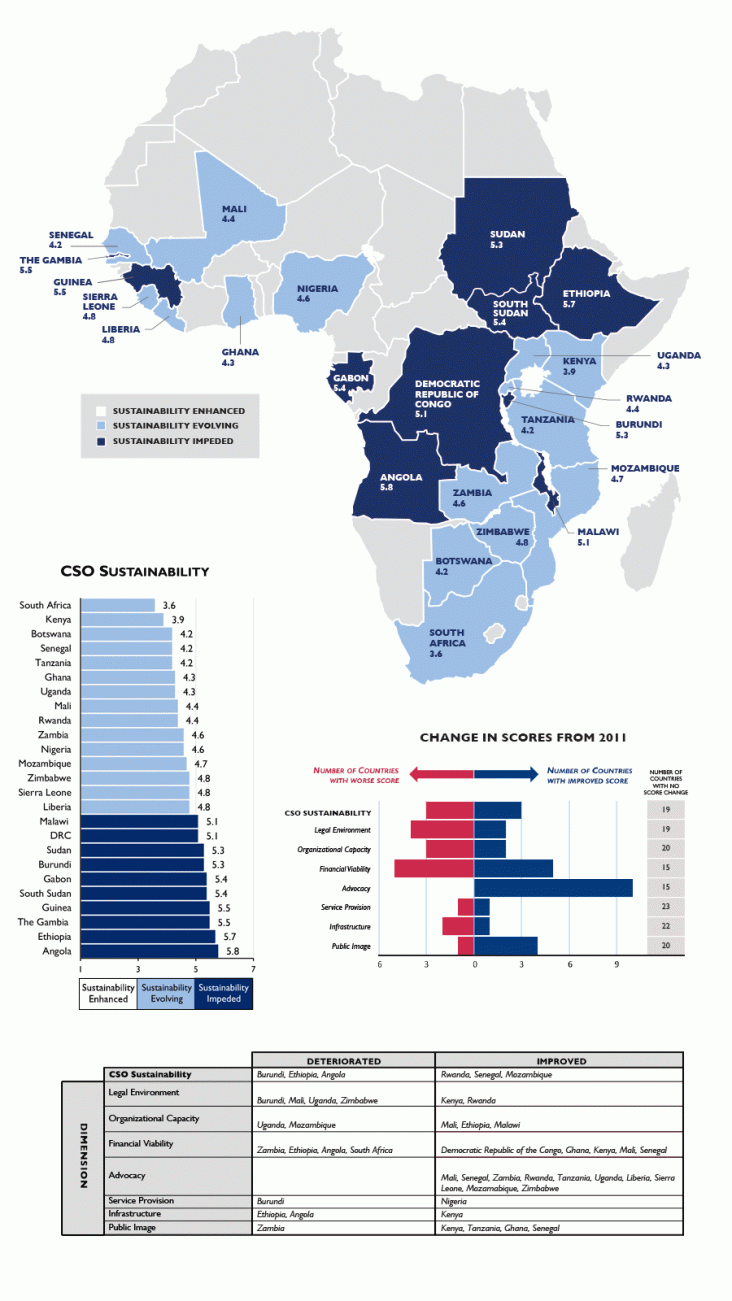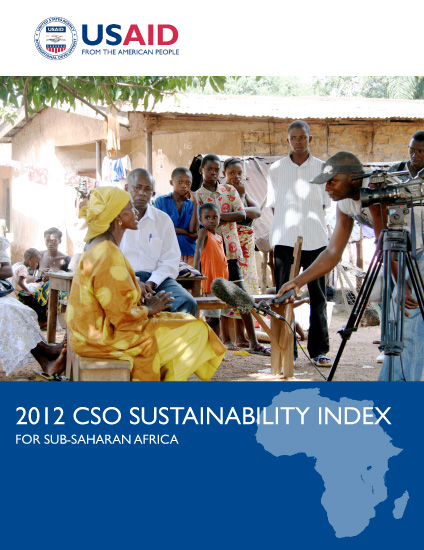- What We Do
- Agriculture and Food Security
- Democracy, Human Rights and Governance
- Democracy, Human Rights and Governance Strategy
- Supporting Free and Fair Elections
- Supporting Vibrant Civil Society & Independent Media
- Protecting Human Rights
- Promoting Accountability & Transparency
- Importance of Democracy, Human Rights, & Governance to Development
- Countering Trafficking in Persons
- Economic Growth and Trade
- Education
- Ending Extreme Poverty
- Environment and Global Climate Change
- Gender Equality and Women's Empowerment
- Global Health
- Water and Sanitation
- Working in Crises and Conflict
- U.S. Global Development Lab
The Civil Society Organization Sustainability Index (CSOSI) has been used by USAID since 1997 to assess the sustainability of the CSO sector in Europe and Eurasia. The CSOSI was first applied in Sub-Saharan Africa in 2009, and the 2012 edition covers 25 countries including Sudan and South Sudan. By gathering data against a set of standard qualitative indicators each year, the CSOSI enables readers to monitor developments and identify trends in the CSO sector over time while allowing for comparisons across countries. It is used by CSO advocates, other development partners, and academics, among others, to identify positive and negative trends in the civil society sector as well as obstacles impeding the sector's sustainability across the region, such as trends pertaining to the legal environment, organizational capacity, and financial viability.
While overall scores for CSO Sustainability across Sub-Saharan Africa generally remained stable in 2012, there were a number of important trends across several groups of countries: human security issues placed new demands on service provision in The Gambia, Sudan, Mali, and Nigeria; elections and leadership changes sparked political and social tension in Senegal, Ethiopia, Malawi, and Zimbabwe; difficult economic environments due to the global financial crisis impacted CSO resource availability in almost all of the countries; and in several countries, relations between CSOs and governments improved as governments in Botswana, Liberia, Sierra Leone, Tanzania and Zambia made new policies or created mechanisms to engage CSOs on critical issues. The country reports provide an in-depth look at the CSO sector in each of the 25 African countries covered by this report.









Comment
Make a general inquiry or suggest an improvement.